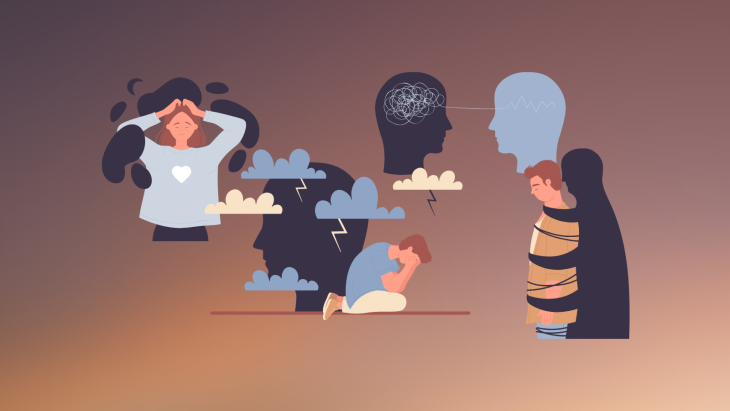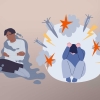Recent Posts
- Am I too sensitive to noise? It drives me crazy! The psychological effects of noise on mental health
- What are the signs that I am avoiding grief? How avoiding processing loss impacts mental health
- My son's disruptive behavior is affecting his life. How can I help him improve?
- I want to be ready for motherhood: Exploring pre- and postnatal mental health issues
- Effects of positivity on job search motivation. How do I stay confident when my job search gets tough?
Most Popular
What are the possible long-term effects of mental health conditions that are left untreated?

The US is facing a threat to public health. In a CNN poll, Americans think mental health in the US has reached a crisis.
Mental health is as crucial as physical health because the state of our mind allows us to cope with the daily stresses of life, grow into the best person we can be, learn and perform our tasks, and make a dent and positive change in our community.
With a healthy state of mind, we, as individuals and as a group, are able to make important decisions, create and sustain relationships and eventually create a world for the next generation.
But what if due to many factors, a country’s youth and adult population are suffering from mental health conditions including mental disorders, social and mental disabilities, and mental states that make it difficult for one to manage stress, anxiety and fear, and to live functionally?
In fact, according to Mental Health America (MHA), close to 50 million American adults are experiencing mental illnesses ranging from mild, moderate to severe. These are disorders that can be diagnosed, and that affect one’s mind, behavior, and emotions.
Also, adults who struggle with substance abuse disorders affect almost 6% to 13% across different states in the US.
Finally, the MHA estimates that there was a rise in the number of people in the US who had suicidal thoughts compared to 2021 data.
Access to treatment
Just as we need treatment when we are physically sick, we also require access to mental health treatment in order to address and improve our mental health status. ‘
However, studies say that 7 in 10 people in the US do not receive the treatment they need for mental illness.
Top reasons include the need for more mental health professionals and more mental health resources, and the lingering stigma surrounding mental health.
More specific barriers include:
- Fear of disapproval from family,
- Not knowing where to get help,
- Fear that getting diagnosed will negatively affect school/work,
- Desiring to find a solution alone,
- Fear that being diagnosed might affect one’s chances of getting a job,
- Feeling embarrassed when labeled “crazy”,
- Fear of the cost of mental health treatment,
- Being unwell to seek help,
- Difficulty talking about emotions,
- Denial.
Because of these, sadly, the majority of those suffering from mental health issues lack mental health care.
What happens if the mental health crisis is not averted?
What is happening around us already paints a sad picture of what happens when mental illness is untreated.
According to studies, 7 in 10 women and almost 6 in 10 men in our state prisons have at least one mental illness. Meanwhile, 6 in 10 young people who are undergoing drug rehabilitation programs may meet the criteria for a mental illness, and 3 to 7 in 10 people who ended their life have either major depression or bipolar disorder.
Untreated mental illness affects the person who has it. Not seeking treatment may make symptoms worse. In effect, one can suffer physically by not being able to do simple and basic self care activities like cooking and eating, sleeping, and doing personal hygiene. This leads to increased risk for developing lifestyle-related diseases like heart disease and diabetes. There is also a risk for self-harm.
Untreated mental illness affects the person’s family, friends and loved ones. People who care about the person with mental illness may feel distressed trying to help. The stress can even lead them to develop mental health struggles themselves.
Untreated mental illness affects the community. Some symptoms of severe mental illness include delusions and hallucinations that can cause harm to others.
Because the impact of not getting treatment for mental health illness goes beyond the individual, it takes a village, a community and a society to share the burden. Assisting those who may be silently struggling with mental health issues to get access to mental health care may be the first step in addressing the mental health crisis in the country.
Are you in search of your next fulfilling career in health care and in the field of mental health? Find out how you can connect with high-quality job opportunities across the US!








Comments